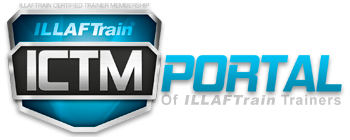Accounting principles
Course id: 7644
Duration: 5 dyas/ 4 H per day
introduction
One question that students frequently ask is, “How will the study of accounting
help me?” It should help you a great deal, because a working knowledge of accounting is desirable for virtually every field of endeavor. Some examples of how accounting is used in other careers include:
General management: All general managers need to understand where the enterprise’s cash comes from and where it goes in order to make wise business decisions.
Marketing: A marketing specialist at a company develops strategies to help the sales force be successful. But making a sale is meaningless unless it is a profitable sale. Marketing people must be sensitive to costs and benefits, which accounting helps them quantify and understand.
Finance: Do you want to be a banker, an investment analyst , a stock broker? These fields rely heavily on accounting. In all of them you will regularly examine and analyze financial statements. In fact, it is difficult to get a good finance job without two or three courses in accounting.
Prerequisites
Reasonable knowledge in English language.
Knowledge in one of the common accounting programs at least.
Audience
Trainee should be in the field of economics , accounting , banking & insurance and business administration whatever graduate or undergraduate.
Objectives
At the end of this course every trainee will be able to:
- Understand what accounting is .
- Understand generally accepted accounting principles .
- Understand and using the basic accounting equation.
- Understand the four financial statements and how they are prepared.
- Understand what an account is and how it helps in the recording process.
- Identify the basic steps in the recording process.
- Prepare a trial balance.
- Understand the time period assumption and the accrual basis of accounting.
- correcting entries.
- Prepare adjusting entries for deferrals and accruals.
- Preparing the adjusted trial balance .
- closing the books.
- Preparing financial statements.
- Classifying balance sheet.
Content
The First Day:
- Explain what accounting is.
- Identify the users and uses of accounting.
- Explain generally accepted accounting principles and the cost principle.
- Explain the monetary unit assumption and the economic entity assumption.
- State the accounting equation, and define its components.
- Analyze the effects of business transactions on the accounting equation.
- Understand the four financial statements and how they are prepared.
The Second Day:
- Explain what an account is and how it helps in the recording process.
- Define debits and credits and explain their use in recording business transactions.
- Identify the basic steps in the recording process.
- Explain what a journal is and how it helps in the recording process.
- Explain what a ledger is and how it helps in the recording process.
- Explain what posting is and how it helps in the recording process.
- Prepare a trial balance and explain its purposes.
The Third Day:
- Explain the time period assumption.
- Explain the accrual basis of accounting.
- Explain the reasons for adjusting entries.
- Identify the major types of adjusting entries.
- Prepare adjusting entries for deferrals.
- Prepare adjusting entries for accruals.
- Describe the nature and purpose of an adjusted trial balance.
The Fourth Day:
- Prepare a worksheet.
- Explain the process of closing the books.
- Describe the content and purpose of a post-closing trial balance.
- State the required steps in the accounting cycle.
- Explain the approaches to preparing correcting entries.
- Identify the sections of a classified balance sheet.
The Fifth Day:
Apply the accounting theoretical concepts by using the Aalkhazen accounting program.

